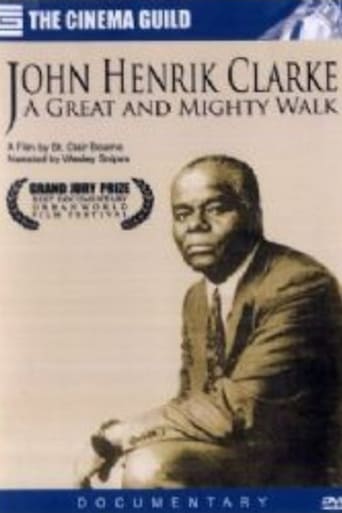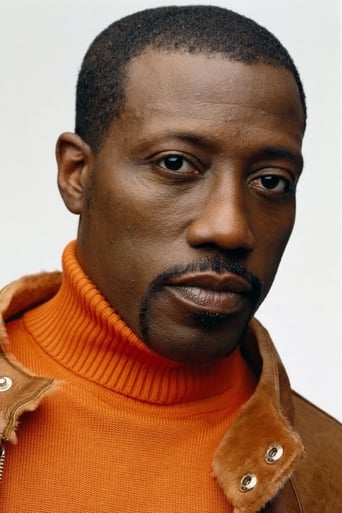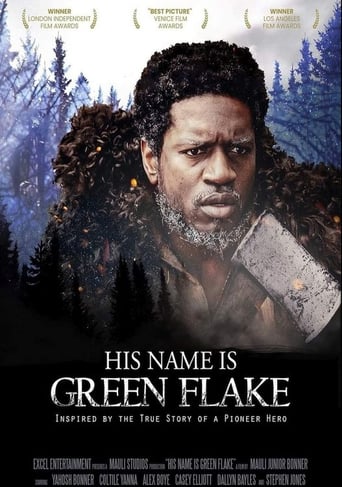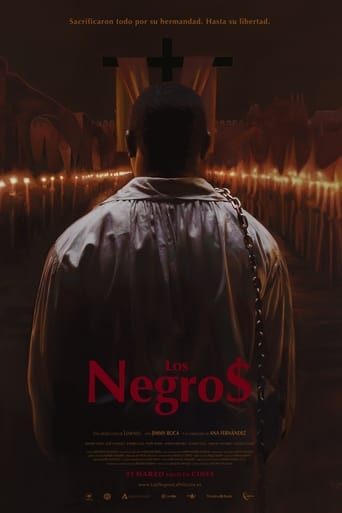

John Henrik Clarke: A Great and Mighty Walk (1996)
John Henrik Clarke talks about Black history.
Watch Trailer
Cast


Similar titles
Reviews
Pretty Good
A Disappointing Continuation
The film creates a perfect balance between action and depth of basic needs, in the midst of an infertile atmosphere.
Ok... Let's be honest. It cannot be the best movie but is quite enjoyable. The movie has the potential to develop a great plot for future movies
I thought this film inspired me to go forward and do research on my own to learn the history that has been over looked in our country for too long. It's a film that should be shown in every inner city high school history class in the country. I believe this film will bring hope and will give the children a since of belonging to something bigger then themselves. My desire is that it will bring understanding to the children of the slaves and the masters, that their people have a history and past that is more them slavery and their fore fathers being taken from their birth land. I was astonished with Mr. Clarke knowledge and how far reaching it was. His insight and the manner in which he disseminates his knowledge to the people like me only left me wanting more. Most of all this isn't a film just for people of color, but a film for all to learn from. It's a film for those who have questions. But by far the saddest part of this film is to understand how poor our history classes have become in America.
This documentary consists almost entirely of the octogenarian, and totally blind from glaucoma, John Henrik Clarke talking to the camera, backed up by old film clips and still photos. We hear at length Mr. Clarke's ideas regarding black nationalism, pan-Africanism and the like while learning almost nothing about Clarke as a person. He tells us that he earned a Ph.D., but we don't learn from where, and that he taught, but we don't learn where. We don't even learn if Clarke was married, has children, where he has lived since age 18, or any of the usual stuff of documentaries. We learn of his admiration for Marcus Garvey, Malcolm X, and Kwame Nkrumah and of his reservations about Martin Luther King (he thinks King was wrong to adopt non-violence as a philosophy). Clarke tells us that history has been dominated by a Eurocentric perspective (undoubtedly true), that black history has been egregiously neglected (undoubtedly true as well), that Africa was ravaged by the slave trade and colonialism (also undoubtedly true), and advocates a pan-African, black nationalist perspective. Fine--that is a respectable point of view, and he is certainly entitled to his opinion. What he is not entitled to do, however, is to distort history, which he does throughout this documentary. Here are some of his assertions, which are at best dubious and at worse demonstrable falsehoods:1) He states that the civilization of ancient Egypt was a black civilization, but offers not one whit of evidence to support this. 2) He states that the ancient Carthaginian civilization, and Hannibal, were black, but again offers no evidence to support this. 3) He states that Egyptian civilization was the crowning glory of the ancient world, an assertion that is absurd by any reasonable standard. In fact, most people would have to strain to recall any lasting intellectual contributions made by the Egyptians, whose civilization was dwarfed intellectually by those of Greece and Rome. 4) He states that Carthage was conquered by "a group of thugs who weren't very well educated--the Romans." Absurd: he is talking about the civilization of Vergil, Cicero, Marcus Aurelius, for any of whom there is no equivalent in the Carthaginian legacy. 5) In perhaps the most absurd, and demonstrably erroneous, assertion of all, he states that the fall of Rome was brought about in large part by the rise of Islam, and that Rome was defeated by the Arab Moslems when they invaded North Africa. Fact: Rome fell in 476 as a result of invasions from Gothic tribes from what is now Germany. Islam didn't originate until 632, and the Islamic conquest of North Africa didn't occur until the century after that, so Clarke is off by over 150 years. 6) Clarke states that W.E.B. DuBois was the greatest mind that America has ever produced. Well, he's entitled to his opinion, but he offers no evidence to support this point of view.I could go on, but I'll stop here. The film has some merit in that it presents an alternative to Eurocentrism, but this merit is far outweighed by its outright distortions of fact. In all, a mediocre film at best. 5/10
The world does not run on truth but rather on competing perceptions. This is why our politicians deal in "spin" (the weaving of perceptions) and our legal system has a standard of "reasonable doubt" (judgment rendered from how facts are perceived), rather than absolute verity. This documentary, noble in its aim, advances a reconciliation of how this adage has been advanced via the Eurocentric perception of history. Mr. Clarke, an eminent historian and educator, compels the truth seeker with his authoritative command of historical accounts long omitted, manipulated and rejected by the revisionism of European recorders of history. Perhaps others from other cultures will someday endeavor to unearth, reveal and make available to all their histories and make similar contributions to the world's historical reconciliation of truth, for as long as we continue to labor under the false, misguided and in some cases sophistic perceptions that govern our thinking, we will continue to be slaves to the dissent that divides the human family, rather than be liberated by the unbiased knowledge of our shared contributions and value to history. I recommend this film for its advancement of this aim.
An Afrocentric perspective is necessary for a true understanding of the interconnectedness of all peoples of the world. By teaching from an Afrocentric perspective, a legitimate but misunderstood philosophical and academic discipline, we, as citizens of the world, gain additional insight to the contributions that African people have made to humanity. Clarke was one who recognized that African people were misrepresented by scholars in the post-imperialist era, when scholarship regarding people of African origin was suppressed and almost eliminated by colonialism.When status-quo bearers are close-minded to new ideas, particularly the idea of the Ancient Egyptians (Kemetans) as dark-skinned, woolly haired Africans, you wonder if ignorance has played a role in the shaping of such ideas. Afrocentric scholarship, among other things, attempts to return the Kemetans to their rightful place as Africans; imperialism tried to separate north Africa from so-called sub-Saharan Africa because it was felt that Black African people were not technologically sophisticated enough to come up with "civilized" societies. In la Monde Francophone (the French-language-speaking world), Afrocentricity is recognized academically, and the scholars and thinkers, especially the work of the Senegalese Egyptologist and anthropologist Cheikh Anta Diop, are canonized.The closing credits say, "The comments made by Dr. Clarke are not necessarily those of the filmmakers." You may not agree with everything, but even with the evidence presented, you cannot dismiss facts uncovered by Clarke and his contemporaries as fiction. An important documentary, one that will wake you up to the rich possibilities of different perspectives.





